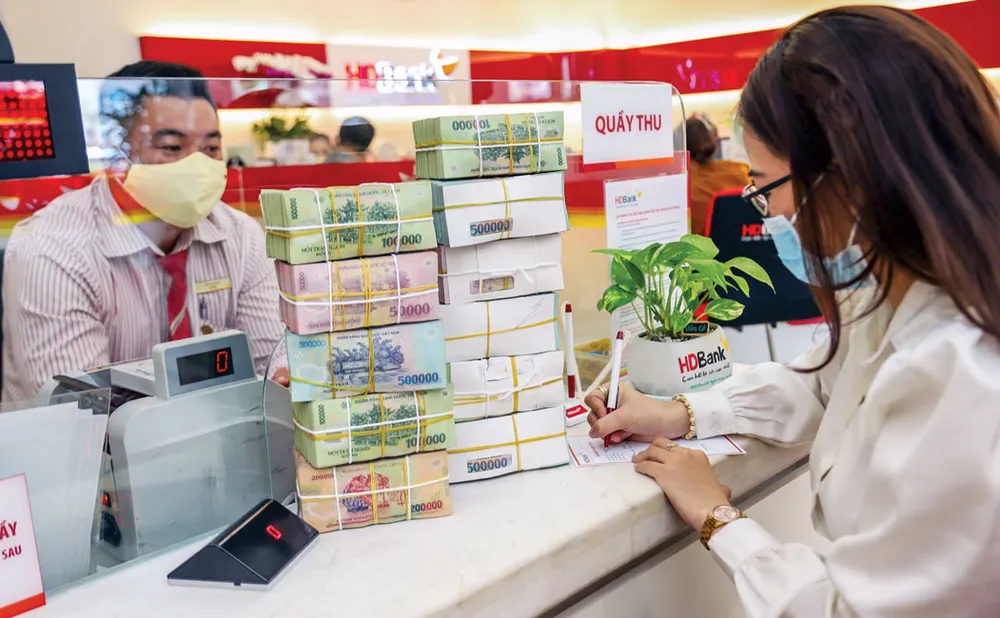
However, greater attention must also be paid to the capacity of the budget, and not to burden the budget with undue risks.
Size of economic package
The economic support packages during the pandemic of many countries around the world can be divided into two main groups, namely, direct support for aggregate demand through tax cuts, spending increase, and employment support programs; and financial support for businesses through loans and guarantee programs.
According to IMF statistics, the economic support package of developed countries such as Japan, Italy, the UK, and Germany will account for 30% to 40% of GDP in 2020, while some expenditure will continue to be implemented throughout 2021. Therefore, the size of economic support packages of developing countries will be much lower (Table 1).
This fourth wave of the Covid-19 pandemic has had a greater and more serious impact on the national economy in general and Ho Chi Minh City in particular, so the scale of support packages needs to be large enough to be effective. In other words, real money must be injected to restart the economy once again. In our opinion, this economic support package must be at 4% of GDP, which means 3% for additional expenses and 1% for loan and guarantee support, equivalent to VND 251,000 bn. This amount will be suitable to cover the scale of the Vietnamese economy.
With such a strong stimulus package, the credit support this time should focus on small and medium enterprises (SMEs), households, and individuals borrowing for daily consumption. These are the subjects who have been badly hurt by the Covid-19 pandemic, and their ability to withstand damage is many times lower than that of large enterprises. This is also the group that has difficulty in accessing ordinary banks and even more difficulty to access support packages.
To resolve this problem, the government needs to shift the creditor's risk to its side because when the uncertainty is high, banks will limit lending. Therefore, in order to open capital flow to these subjects, the government may need to accept this risk. The implementation of the state credit guarantee program here will play the same role as deposit guarantee and lender, as a last resort. This policy, in general, will help increase social welfare in risky situations that have been brought about due to the Covid-19 pandemic.
At the same time, it is necessary to quickly disburse public investment in the remaining months of 2021. By the end of the first six months of 2021, the disbursement rate for public investment was only 29.02% of the plan, so it is necessary to accelerate public investment in the remaining months of 2021 to support the economy. In case it is not possible to disburse according to schedule and plan, the Government can reallocate this public investment for economic relief activities.
Focused support
Policies to support SMEs will focus on two types of support. Firstly, support liquidity, defer taxes, fees, contributions of SMEs; financial support; job maintenance and wage subsidies. Secondly, structural support is needed to help SMEs adapt to the changing business environment and build resilience. Specifically, the Government directed ministries and branches must quickly implement simplified procedures for exemption, reduction, and postponement of payment of taxes, fees, and contributions of operating enterprises in 2021. Supporting businesses must restart business activities right after the end of this fourth wave of the pandemic. The Government can support paying part wages directly to employees for businesses that are operating with a commitment not to reduce labor, especially those that use a lot of labor.
As support resources are limited, it is necessary to classify businesses that can operate continuously. For example, businesses that are directly affected but are able to continue operating should be prioritized for timely support by various proposals such as postponement of payment of social insurance, land rent, loan interest, and tax deferral. These enterprises can also provide additional credit guarantees through commercial banks.
The selection of enterprises in each industry to support should have a certain order of priority, based on two factors. First, recovery speed and second, a stable level of output of products. Businesses that recover quickly will help support the economy and from there have a spill over effect for other businesses to recover. Thus, policies should have a focus on groups of businesses, not spread out. Finally, and more importantly, it is necessary to create a favorable business environment to help businesses quickly recover from the pandemic.
In addition, it is necessary to develop a program to support businesses to cope with the pandemic. Empirical studies show that enterprises with experience in responding to natural disasters and epidemics will be able to recover labor and output faster than inexperienced enterprises. Therefore, the Government needs to develop programs to support businesses with information and knowledge in preparing to respond to natural disasters and epidemics to reduce risks. In addition, the Government should have policies to promote the role of the private sector in the prevention and response to future events such as the current Covid-19 pandemic.




















